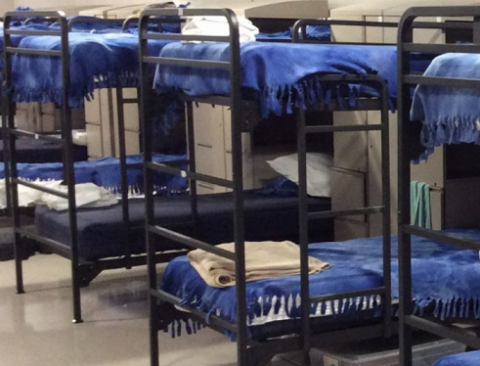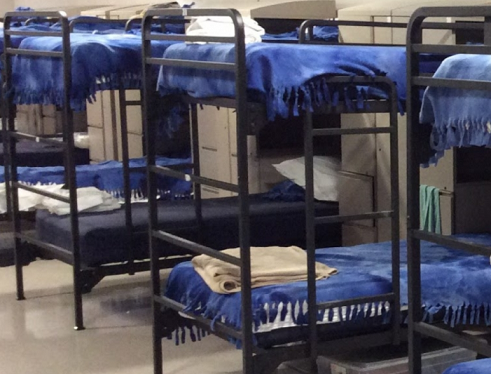Updated 7:30p for clarity
Kenosha---A new building, new grants, new training for staff and stronger partnerships with community agencies have enabled the Shalom Center—Kenosha’s primary shelter for the homeless—to expand its services a bit in recent months.
Executive Director Lynn Biese-Carroll says Shalom is now able to admit homeless people with greater mental health needs."We are capable of keeping people that we might not have kept before," she said in a WGTD News interview, adding, "We are not a mental health facility. We need to be clear about that. But we are able to be of service to more people."
In addition, a grant has allowed the center to permit some guests under certain circumstances to stay for longer periods of time.
With the opening of the new shelter on 39th Ave., Shalom no longer is reliant on area churches for help with offering overnight accommodations to primarily single people. That has meant that homeless people don't have to move from church to church each night, and can use the Shalom Center as a home base to search for work or higher-paying jobs and permanent shelter.
Last fall, with prodding from CUSH, Congregations United to Serve Humanity, the county awarded Shalom $60,000 to fill a gap left by the closure of First Step, a low-barrier shelter in Kenosha. The funding enabled Shalom to add 10, cold-weather emergency cots.
The cots are now in storage, and Biese-Carroll hopes that a new strategy of working year 'round to persuade homeless people to leave the streets and participate in various programs to make them self-sufficient before the cold returns will alleviate the need for the temporary cots. "If the entry process allows people with more significant needs to come in one at a time when the need arises, we won't have 10 or 15 people on the street in the cold in December," she says.
Shalom works closely with Kenosha Human Development Services, which runs an outreach program and also staffs KARE, a new center on 60th St. that offers temporary shelter and treatment for people with mental health and substance abuse issues. The facility is also home to the area's crisis hotline and offers in-house help to people in crisis.
The Shalom Center is getting ready to launch a new capital campaign that it hopes will make the non-profit debt-free by the end of the year. However, that won’t impact the center’s growing operational cost, which Biese-Carroll says is the result of offering new services to greater numbers of people. Shalom has an annual $1.4 million operating budget.
Biese-Carroll is proud of how far the Shalom Center has come over the past several years. "This is what we think dignity for the homeless looks like," she said, referring to the new facility. "This is a good place for people to put their burdens down--to get some help both psychologically and financially and really from an emotional support perspective."
-0-

